- About
-
Divisions
- National Farm Animal Care Council
- Canadian Animal Health Surveillance System
- Emergency Management
- Work Areas
- E-learning Campus
- AHC Forum
- Communications
_f200x212_1713824588.jpg)
Brandenburg State Forest Services, Germany
Egbert.Gleich@lwf.bayern.de
Egbert Gleich, graduated from agricultural engineer (AIS Güstrow) and forestry engineer (TU Dresden). He completed a thesis in natural science (FU Berlin) using telemetry to study fallow deer. Egbert spent ten years working in reproductive management (breeding, embryo transfer, artificial insemination) of farm animals before returning to wildlife research work in 1988. He has studied wildlife food preferences, age determination, chemical immobilization, catching, tagging and transportation, as well as animal welfare in traps. Egbert has participated in wildlife disease control initiative including Classical Swine Fever, African Swine Fever and Rabies.
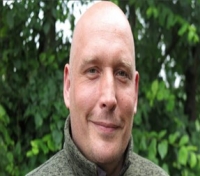
Carl Gremse
Brandenburg State Forest Services, Germany
cmgremse@gmail.com
Carl Gremse is a forestry and wildlife scientist working at the State of Brandenburg Forestry Research Institute in Eberswalde, Germany.
He specializes in hunting related topics with focus on animal welfare and disease mitigation. Since 2014, he has been involved in ASF – Prevention and since 2020 in the ongoing ASF-eradication efforts – focussing on wild boar reduction techniques including the effective combination of trapping and night shooting. Carl has spent time studying and working in northern Alberta, Sweden and Alaska in the past.
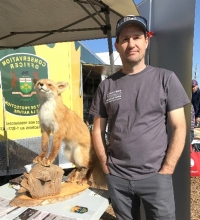
Travis McGee
Ontario Ministry of Natural Resources & Forestry
travis.mcgee@ontario.ca
Travis McGee obtained a diploma in forestry from Sir Sandford Fleming College. He has worked for the Ministry of Natural Resources and Forestry for 25 years. With experiences ranging from 18 seasons with the Aviation, Forest Fire and Emergency Services section as a crew leader, working in the Cochrane District as a Resource Technician, and with the Far North Unit - Mid Canada radar site remediation project. Currently he has worked as a Wildlife Research Technician with the Wildlife Research and Monitoring section in the rabies program for the last 8 years with this last year as the Senior Technician for the Wild Pig team.
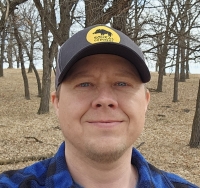
Devon Baete
Squeal on Pigs Manitoba
devon@squealonpigsmb.org
With an education in Natural Resources Management and 15 years of experience working one on one with landowners as a Watershed Project Manager, Devon brings a grass-roots approach to wild pig eradication. As a volunteer, Devon started the provinces only trapping program in 2018 and has been working with Squeal on Pigs Manitoba since 2020. In 2023 Devon was hired full time as the Manager of Field Operations and has expanded trapping Province wide.

Paula Julio
Ontario Ministry of Natural Resources & Forestry
Paula.julio@ontario.ca
Paula Julio is a Biodiversity Policy and Program Advisor with the Ontario Ministry of Natural Resources and Forestry. Her career has spanned 20 years with the ministry. Her experiences range from working in the Northeast Region in the Wildlife Assessment Program on small mammals, salamanders and songbirds, as a Species at Risk Biologist primarily working on wood turtle monitoring, and several positions related to species at risk, including leading the Species at Risk Stewardship Fund and developing the Grassland Stewardship Initiative. She has spent the last five years on invasive species policy development and initiatives, including invasive wild pigs.
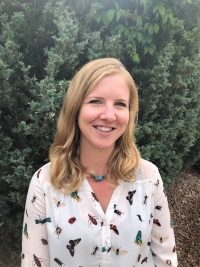
Emily Lomas
British Columbia Ministry of Water, Land & Resource Stewardship
Emily.Lomas@gov.bc.ca
Emily is the Terrestrial Invasive Fauna Specialist with the British Columbia Ministry of Water, Land and Resource Stewardship. She joined the provincial government in 2019 after several years working in municipal government. She has worked on a variety of topics, including human-wildlife conflict prevention and wildlife research. Emily is focused on mitigating the threat associated with invasive animals through science-informed policy and preventative actions. She is also the provincial Early Detection Rapid Response (EDRR) Coordinator for terrestrial animals, supporting the EDRR Advisory Committee. Emily is a Registered Professional Biologist and holds an MSc in Environmental Science. Emily is based in the beautiful BC Interior, in Tk’emlúps te Secwe̓pemc territory, which is situated within the unceded, traditional lands of the Secwepemc people.
_f400x301_1713825159.jpg)
Mathieu Pruvot & Team
Wildlife Health& Ecology, Faculty of Veterinary Medicine, University of Calgary
mpruvot@ucalgary.ca
Dr Mathieu Pruvot is a veterinarian epidemiologist and disease ecologist at the Faculty of Veterinary Medicine, University of Calgary. His research focuses on the transmission of pathogens at the interfaces between wildlife and livestock, and the effect of population structure and distribution on disease spread. Together with PhD students Devin Fitzpatrick, Oshin Ley and Luis Salazar, they study the ecology of wild pig populations, their interactions with livestock, and pathogen transmission between wild and domestic pigs. Collaboration with various partners, institutions and stakeholders is an essential ingredient for this research program.
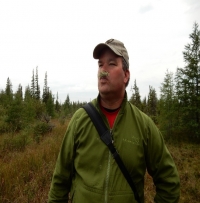
Ryan Brook
Department of Animal of Poultry Science, University of Saskatchewan
Ryan.brook@usask.ca
Dr. Ryan Brook is a Professor in the Department of Animal of Poultry Science at the University of Saskatchewan. He has been doing research on invasive wild pigs and domestic wild boar farms in Canada for over 14 years. He is also prolific in doing out reach and engagements, having an active presence on social media and he has done over one thousand media interviews for radio, television, and newspaper about wild pigs. His research team has published 18 peer-reviewed papers on wild pigs and is currently focused on wild pig movements, reproduction, national distribution, and genetics.
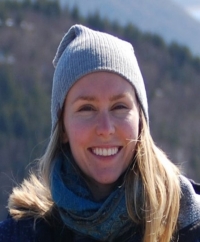
Gabby Nichols
Canadian Council on Invasive Species
programs@canadainvasives.ca
Gabby is committed to working collaboratively to increase awareness and stimulate action to protect ecosystems in Canada. Through her role as Programs Manager at the Canadian Council on Invasive Species, she works with organizations across Canada, including the Council’s provincial/territorial Chapter Network, to collaboratively develop strategic tools and resources to increase public awareness, industry leadership, and preventative actions to stop the spread of invasive species. Gabby’s role includes supporting the implementation of six national behaviour change campaigns, including the “Squeal on Pigs!” campaign. Gabby joined the CCIS in 2020, bringing her experience of invasive species education and management from her previous roles within provincial government, municipal government, and non-profit sectors. Gabby holds a Masters of Environment and Sustainability from the University of Western Ontario, and a Bachelor's of Bio-Resource Management from the University of Guelph. Gabby is grateful to work and live on the treaty lands and territory of the Mississaugas of the Credit First Nation (the Between the Lakes Treaty No.3), in Guelph, Ontario.
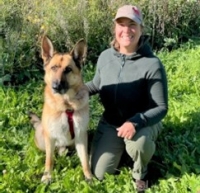
Hannah McKenzie
Alberta Agriculture & Irrigation
Hannah.mckenzie@gov.ab.ca
Hannah graduated from the University of Alberta with an MSc in Mathematical and Statistical Biology and an MSc in Applied Mathematics. Prior to taking on her current role as Wild Boar Program Specialist, Hannah worked with the Alberta Aquatic Invasive Species program along with her K9 partner Seuss. Hannah employs her quantitative skills to support evidence-informed policy and program decisions.

Arne Thorlacius
Manitoba Pork Council
athorlacius@manitobapork.com
Arne graduated from the University of Manitoba with a Masters Degree in Political Studies. As Industry
Service Coordinator with Manitoba Pork Council, Arne has developed the Squeal on Pigs database and provides GIS expertise for mapping.
Brent Guppy
BioScision Diagnostics Labs, Manitoba
brentj@bioscisiondiagnostics.com
James Hood
School of Agriculture & Environment, Assiniboine Community College
hoodj@Assiniboine.net
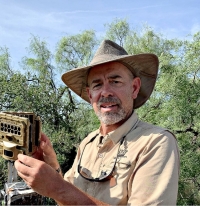
Kurt VerCauteren
National Wildlife Research Center of the United States Department of Agriculture
kurt.c.vercauteren@usda.gov
Kurt VerCauteren earned a BS in Wildlife from the University of Wisconsin-Stevens Point, and a MS and PhD from the University of Nebraska-Lincoln. He has served as a Supervisory Research Wildlife Biologist for the National Wildlife Research Center of USDA-Wildlife Services for over 20 years. The goal of Kurt’s research is reducing human-wildlife conflicts and diseases of wildlife. Over his career he has focused primarily on deer, elk, wild pigs, raccoons, bovine tuberculosis, chronic wasting disease, and rabies. He has been an Affiliate Faculty member at 14 universities and published over 200 papers in scientific journals. When not working he enjoys spending time with his wife and two daughters and hunting anything with hooves or feathers.
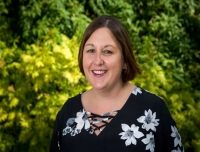
Christa Arsenault
Ontario Ministry of Agriculture, Food and Rural Affairs
Christa.Arsenault@ontario.ca
Christa is a Lead Veterinarian in the Animal Health and Welfare Branch, Ontario Ministry of Agriculture, Food and Rural Affairs. Christa is the OMAFRA co-lead for the Ontario Animal Health Swine Network (OAHN). She has been involved in the swine industry since graduating from the Ontario Veterinary College in 2006. She has worked in private practice, for Animal Health Canada (AHC) as the ASF Manager and has also worked with both the federal government working for the Canadian Food Inspection Agency (CFIA) and provincial government working for OMAFRA over the span of her career. Christa also holds the position as the manager of the Canadian Swine Health Intelligence Network (CSHIN) and has been involved in CanSpotASF surveillance since its initial launch in 2020.
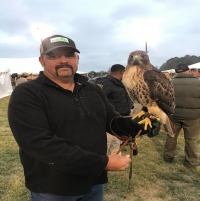
Aaron Sumrall
Pig Brig Trap Systems
aaron@pigbrig.com
Aaron joined the Pig Brig team in the fall of 2021. Before coming on board with Pig Brig, Aaron worked for Texas A&M AgriLife Extension for 20+ years, assisting farmers, ranchers, wildlife and land managers on a myriad of topics, Including wildlife pest management and mitigation, work on applied research projects, management publications, and outreach education across Texas. Aaron holds BS and MS degrees in Animal Science and a PhD in Wildlife Ecology from Sam Houston State and Texas A&M, respectively. The lion’s share of his research and management has focused on feral pig management/mitigation, diseases, biology and behaviour, economics, damage, and human/feral pig dynamics. Aaron enjoys working with landowners and managers in individual settings, speaking at conferences to inform them about new research and helping determine how to remove feral pigs form their areas of interest.
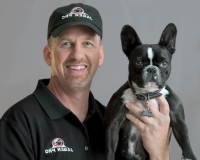
Rod Pinkston
JAGER PRO
Rod@jagerpro.com
JAGER PRO® and Hog Control Academy™ Founder & CEO, Rod Pinkston, earned his living as a Soldier for 24 years. He invented the M.I.N.E.® (Manually Initiated Nuisance Elimination) Trapping System with five approved patents. He also created thermal hog control methods in the United States by being the first person to shoot feral pigs at night with a thermal-scoped rifle. His remote-control trapping and thermal shooting footage were first to appear on national television and YouTube in 2006. His innovation has created the template for modern day wild pig control. For 18 years, Rod has been actively engaged in working with agency administrators and lawmakers to advocate for science-based management and policy development. He researched, developed and wrote the Best Management Practices for Integrated Wild Pig Control® and has successfully led multiple Public-Private Partnerships at the city and county level to remove entire feral pig populations.